Every once in a while, a product comes into the market that changes everything. OrdexiaMaster redefines crypto trading with AI assistance. Why do we have so much confidence in this particular platform, and how will it do what we say it will? Well, that will be explained shortly.
We have created this platform to help both beginners and experienced crypto investors. Gone are the days of constantly monitoring market trends and making manual decisions. OrdexiaMaster fully automates these processes. The user only needs to set strategy parameters or choose from the numerous trading strategies available on the platform.
Our state-of-the-art technological tools, including predictive analytics, risk management tools, and adaptable AI models, ensure that our users are constantly equipped in the marketplace. This isn’t to say OrdexiaMaster is foolproof, as losses can still occur when taking chances. However, trading is optimized with OrdexiaMaster, and insights are always within reach. OrdexiaMaster is the future of crypto trading. Why not sign up?
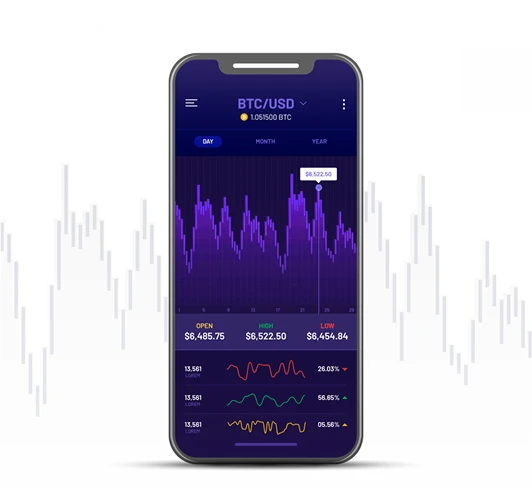
OrdexiaMaster inculcates deep machine learning algorithms to analyze previous market movements and data in real-time. This allows the algorithm to identify patterns and opportunities the user may use while trading. It does the heavy lifting of conducting research and presenting it in an easily understood format for the user. We find that behind the curtain of OrdexiaMaster is a dedicated team of developers committed to helping their users have a suitable experience.
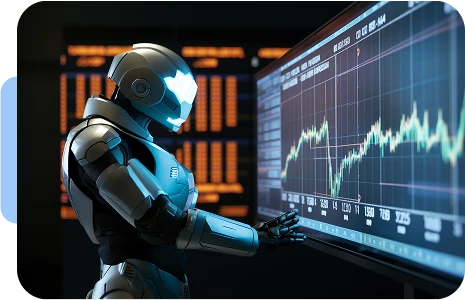
OrdexiaMaster is equipped with a bot that has a large capacity for computation and analysis. Usually, when humans analyze data, we let our biases seep into our understanding and analysis of said data. This is only natural as we are heavily influenced by our immediate environment and the previous knowledge we possess. With this AI-assisted trading bot, users can keep human error to the barest minimum. Unlike computers, we sometimes make decisions based on our whims and biases. OrdexiaMaster eliminates things like that for a well-oiled, objective trading experience.
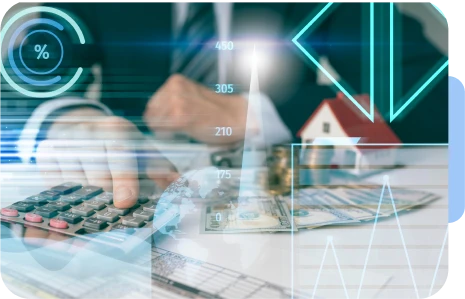
OrdexiaMaster is constantly working and analyzing the market to ensure our users are in tune with the market. Any fluctuation or price changes are pounced upon by the bot and thoroughly analyzed. This is done by the second. As we all know, in this trading game, opportunities can vanish instantly. Sign up on OrdexiaMaster and get the extra inch.
The OrdexiaMaster platform has incredible features and tools to help users manage risk exposure while seeking out opportunities. Some of these features include assisting users in diversifying their portfolios, following the age-old adage of not putting all of one’s eggs in a basket. Also, with stop-loss orders that can cancel trades once losses reach a certain threshold, OrdexiaMaster provides suitable user protection.

Everything the user needs, the platform provides. The pathway to performing tasks has been overly simplified and embedded in a well-designed interface that is pleasing to the eye. The result is that user activity is up because our users actively enjoy using our platform. Indeed, most of the actions the user wants to make can be easily found on the trading dashboard. We created the OrdexiaMaster platform to be intuitive to simplify things for everyone involved.
The OrdexiaMaster platform is built with certain popular strategies. We know that some users want the chance to create and implement their own strategies. The OrdexiaMaster platform allows users to fine-tune and customize their own trading strategy for personal use. Everyone has different goals, and every journey is different. OrdexiaMaster will enable users to carve out their path.
The days of constantly checking devices to ensure that trades are proceeding as desired are over. OrdexiaMaster provides a comprehensive-the-clock automated trading feature that ensures that preset trading strategies are executed promptly.
OrdexiaMaster is indeed fully and seamlessly integrated with most cryptocurrency exchanges. This ensures that all transactions made on our platform are done smoothly. Everything is working in tandem, and this provides a suitable trading experience for our users.
Speed is crucial in crypto trading. Since our API is wholly connected to a cryptocurrency exchange, every deal is completed in seconds, allowing our users to seize the market's opportunities immediately.
In addition to deals now being executed, the OrdexiaMaster platform offers real-time market alerts and notifications. This guarantees that users are informed about the status of their OrdexiaMaster accounts.
Performance evaluation software is available on the OrdexiaMaster platform to assist users in monitoring their development, gains, and losses. Our performance assessment is quite comprehensive and displays stats that are relevant to the user. This allows users to evaluate their growth and mistakes and learn what they do well. It is a well-oiled feedback system that makes a world of difference.
How safe is your money when trading crypto? Security has to come first because hackers and fraudsters are always looking for weaknesses in trading platforms. The age of AI-assisted crypto trading, though replete with endless opportunities, is also fraught with its own risks. That’s why OrdexiaMaster goes the extra mile, using two-factor authentication, data encryption, and other advanced security measures to keep user data protected.
OrdexiaMaster is a new, advanced technology that provides both newbies and experienced traders with an automated and insightful way to brave the cryptocurrency market. An AI bot that powers the platform contributes to a smooth trading experience.
One significant pro is the real-time ability to evaluate even the slightest market change. Since traders already have access to this information, they are well-equipped to select suitable tactics.
OrdexiaMaster is just so much more streamlined than other cryptocurrency platforms. The reasons we have mentioned are for anyone to give us a try and trust us with their crypto trading needs. Sign up on OrdexiaMaster, and let's get started.

OrdexiaMaster is committed to serving every trader. Indeed, this commitment is evident in the numerous features we offer users on our platform. We will continuously update and improve our technology to guarantee that this cutting-edge product will be dependable for everyone who wants to utilize it.
We will be able to stay ahead of the competition thanks to our constant pursuit of excellence via innovation and improvement. We'll keep incorporating additional cryptocurrency exchanges and providing exciting services to ensure our clients don't lose out. Our sole reason for existing is to empower our users to reach greater heights. Isn’t that quite the lofty ambition?
OrdexiaMaster has a team of dedicated customer support representatives who work 24/7 to ensure the seamless functioning of the app for each user. Our staff is available and will respond to every email or call placed on the hotline. Users can rest assured that any issues they might encounter, however few and far between, when using our platform becomes a priority. We do this for our users because we understand the value of time. As the saying goes, a stitch in time saves nine.
If anyone is still reticent, afraid, or unwilling to take the plunge, we say they should check our records. Indeed, we have assisted many traders since OrdexiaMaster was founded. This platform is built to industry standards, and we continue to assist many investors. There are a lot of crypto investors who have only had good things to say about us. This is because the OrdexiaMaster platform works as we say it would.
The age of artificial intelligence is here. Humans must learn to use these new tools to navigate today’s financial climate. Due to unparalleled processing capabilities, OrdexiaMaster uses artificial intelligence to analyze millions of data points instantaneously. This system encourages users to make sophisticated and informed decisions, which can be automated as strategies.
OrdexiaMaster is designed to constantly provide feedback to developers. Any complaints, bugs, or issues that need fixing will be fixed promptly. OrdexiaMaster constantly updates its software to improve its margins. So, as our users constantly improve their knowledge and skills, the platform also evolves. This dual evolution can only help people make objective decisions in the future when it comes to investing in cryptocurrency.

Ever wondered what cryptocurrency actually is? A cryptocurrency is a digital currency that operates on a decentralized system. Unlike traditional currencies that are controlled by a central authority, no single authority controls crypto. Cryptocurrencies are usually kept in digital wallets that can be anonymous and, hence, not subject to any rules.
There are many different types of cryptocurrencies, e.g., Bitcoin and Ethereum. The technology behind cryptocurrency is known as blockchain. Blockchain is a network of computers linked together, hence the ‘chain’ part of the name. It is predicated on the fact that multiple nodes can be used to verify records, making fraud and altering records almost impossible.
Mining is the process of creating a cryptocurrency coin. Miners tackle difficult mathematical problems using powerful supercomputers. In return, they are paid in the native token. However, these days, mining isn’t relevant anymore. Projects have leaned towards less energy-demanding solutions like proof-of-stake consensus mechanisms.
The number one advantage of cryptocurrency is there is no central authority that controls it. This reduces government interference to the barest minimum.
Another pro of cryptocurrency is that it eliminates banking costs. Traditional financial institutions sometimes charge significant fees to facilitate transactions. By eliminating the need for a middleman, Cryptos reduces transaction costs, especially for cross-border transactions. Crypto, of course, assures anonymity to a degree.
The crypto market offers numerous trading and investing opportunities. However, coin prices are highly volatile and often alter over time. Since its inception in 2009, Bitcoin has remained the most popular and valuable coin. It has even attracted government and institutional investments.
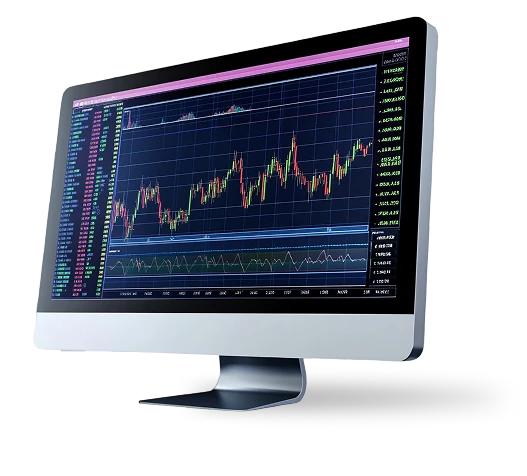
Despite its merits, crypto has its own demerits. One of the demerits is that since there is little to no government oversight, anything goes. Some bad faith actors have been known to launch ‘shitcoins’ that have almost no value. They prop up these coins only to dump them later and rip off crypto traders. It is a new kind of scam.
Another significant barrier is security concerns. Despite the fact that blockchain technology is secure, hackers have been known to target coin wallets, and many have lost their entire life savings in some very high-profile hacks. This makes strong security measures more important than ever.
Another major challenge? Market volatility. As we said earlier, individual traders have different experiences. In fact, due to the market volatility of some of these coins, crypto traders can gain a fortune or lose it all within the blink of an eye. There are some stablecoins, but the majority of cryptocurrencies are unstable and are only fit for speculators to trade.
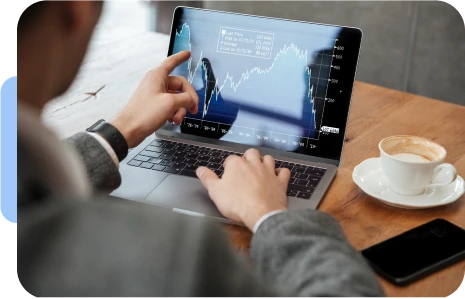
The future can be considered bright for cryptocurrencies as they have quickly gained wide acceptance, but questions still remain. Will it become a standard part of banking? How will the government and law enforcement track and punish those who defraud others of their digital currency? These questions will be answered in the coming years.
How regulatory frameworks change over time will also impact the crypto. The main draw of crypto is that there isn’t too much government oversight, and people can exchange funds anonymously. What happens if this changes?
Ever wished you could borrow, lend, or trade without dealing with a bank? That’s exactly what DeFi makes possible. Running on blockchain networks and using smart contracts removes the middlemen, giving people more control over their finances. The result? A more open, accessible, and efficient financial system.
These are digital assets or tokens that denote ownership of something. It could be a piece of art like a painting or a song. These NFTs are stored on blockchains to maintain their authenticity. NFTs can be traded on most crypto exchanges.
One of the major gripes of cryptocurrency mining is that it takes too much energy to mine. The next step will be to make mining less energy and time-consuming, thereby making the process more efficient. Very soon, cryptocurrencies will become part of everyday life. Some big retail stores all over the world are already accepting crypto payments.
Financial institutions all over the world are jumping on the crypto bandwagon. Everyone wants a piece of the novel assets, and nobody wants to be left behind. With widespread acceptance and adoption comes wider acceptance and credibility of crypto coins. The future is bright, isn’t it?
Anyone who has read this far understands the main idea. We want people to register on OrdexiaMaster and use the platform for its intended purpose.
As an AI-powered cryptocurrency platform, we use advanced tech to provide insights and strategies into a user-focused design that empowers traders to seek their goals. Don’t believe us? Sign up and give us a try.
| 🤖 Entry Fee | No entrance fee |
| 💰 Incurred Costs | Free of any charges |
| 📋 Process of Joining | Registration is streamlined and fast |
| 📊 Subjects Covered | Education on Crypto assets, Forex markets, and Investment strategies |
| 🌎 Eligible Countries | Almost all countries are supported except the US |